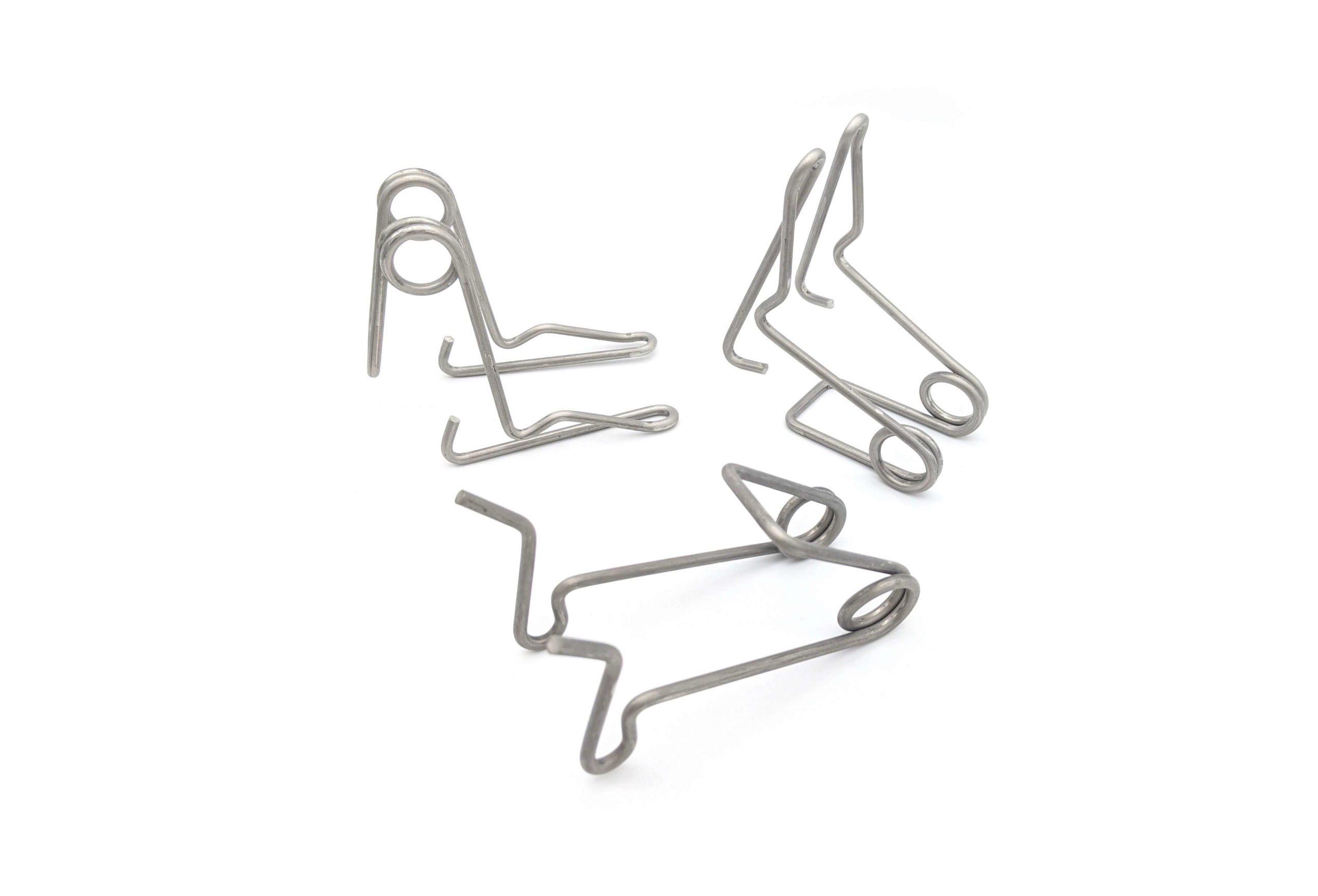Get unique, complex parts easily. No matter your requirements, Chaoyi Spring creates hard-to-produce coil springs and wire forms.
Let us help you create the custom wire form you need, from S-hooks and J-hooks to utility hooks and more.
We work closely with customers across a wide range of industries, helping them design and manufacture made-to-order parts.
Why choose Chaoyi Spring? We prioritize customer-focused collaboration, modern equipment and the latest technology to make your parts per print.
Find the information and guidance you need, from measuring a spring to learning about materials, placing an order and much more.
Flat springs, also known as leaf springs, are a type of mechanical spring made from a flat strip of spring steel. They're deceptively simple in design but incredibly versatile, finding


Flat springs, also known as leaf springs, are a type of mechanical spring made from a flat strip of spring steel. They're deceptively simple in design but incredibly versatile, finding applications in everything from automotive suspensions to precision instruments. Their unique properties make them ideal for situations demanding high load capacities, precise control, and a reliable, resilient performance. This article will delve into the world of flat springs, exploring their construction, advantages, types, and widespread uses.

Imagine a thin, flat piece of spring steel, carefully shaped and tempered to achieve its desired springiness. This is the essence of a flat spring. It's a marvel of engineering, able to withstand considerable forces while returning to its original shape time and time again. The material, often spring steel, is chosen for its resilience and ability to resist fatigue under repeated stress. The shaping process can be intricate, involving bending, forming, and heat treating to create the precise spring characteristics needed for its application.
Flat springs bring a unique set of advantages to the table, making them a favored choice in many applications. They offer a superior load capacity compared to other spring designs, making them suitable for heavy-duty tasks. Their inherent stability and predictability are invaluable in situations requiring precise control and consistent performance. They also tend to be very durable, able to withstand repeated use without losing their springiness. This durability is particularly important in applications subject to harsh environments or frequent cycles of stress.
The world of flat springs isn't just about one design; instead, it's filled with a variety of shapes and configurations, each tailored to specific needs. Here are some of the most common types:
Cantilever springs are flat springs fixed at one end, acting like a lever. The free end is where the load is applied, and the spring bends or deflects under force. These are popular for applications where space is limited, as the spring itself provides the support.
Leaf springs, the classic example of a flat spring, are commonly found in vehicle suspensions. These consist of multiple layers of flat steel, stacked and interconnected. They provide both support and cushioning, absorbing shock and vibrations from the road.
Don't be fooled by the name! While not strictly flat, helical springs can be made from flat spring steel. This unique design combines the flexibility of a flat spring with the compact form of a coil spring. It offers a balance between load capacity, space efficiency, and control.
The versatility of flat springs shines through in their vast applications. From the everyday to the high-tech, they contribute to countless products and systems.
Flat springs are indispensable in automotive suspensions, providing the crucial link between the vehicle's chassis and its wheels. Their resilience smooths out bumps and uneven terrain, ensuring a comfortable ride. Leaf springs, in particular, are known for their robust construction, able to withstand the rigors of heavy vehicles. They're commonly found in trucks, trailers, and off-road vehicles, where their durability and high load capacity are essential.
In electrical switches, flat springs play a critical role in creating the contact points. They're responsible for making and breaking the electrical circuit, ensuring smooth and reliable operation. These springs are often designed with high precision, ensuring consistent performance and minimal electrical resistance.
Even in the delicate world of precision instruments, flat springs find a place. Their ability to deliver controlled force with minimal hysteresis makes them ideal for delicate applications like measuring instruments, scales, and pressure gauges. They ensure accuracy and repeatability, crucial for reliable measurement.
Beyond these primary examples, flat springs find use in a multitude of other applications, including:
Flat springs are a testament to the power of simplicity in engineering. Their unassuming design belies their extraordinary versatility and reliability. From supporting heavy loads to ensuring precision in delicate instruments, they remain an essential component in a vast array of applications. The next time you encounter a flat spring, take a moment to appreciate its contribution to the world around you.
Flat springs, with their robust performance and adaptable design, are a cornerstone of mechanical engineering. They continue to be an essential component in countless applications, ensuring smooth, precise, and reliable operation. Whether you're driving down the road, using a precision scale, or simply writing with a pen, flat springs are quietly working behind the scenes, a testament to the elegance and ingenuity of simple, yet effective designs.
Browse some of the custom wire forms and springs that we manufacture. Don’t see what you need? We specialize in made-to-order products that meet your application requirements.
Visit Our GalleryNeed a custom wire form or coil spring? We make it work. Fill out the contact form and a representative will respond within 1 business day. If you have a PDF or CAD file, you can submit to request a quote.